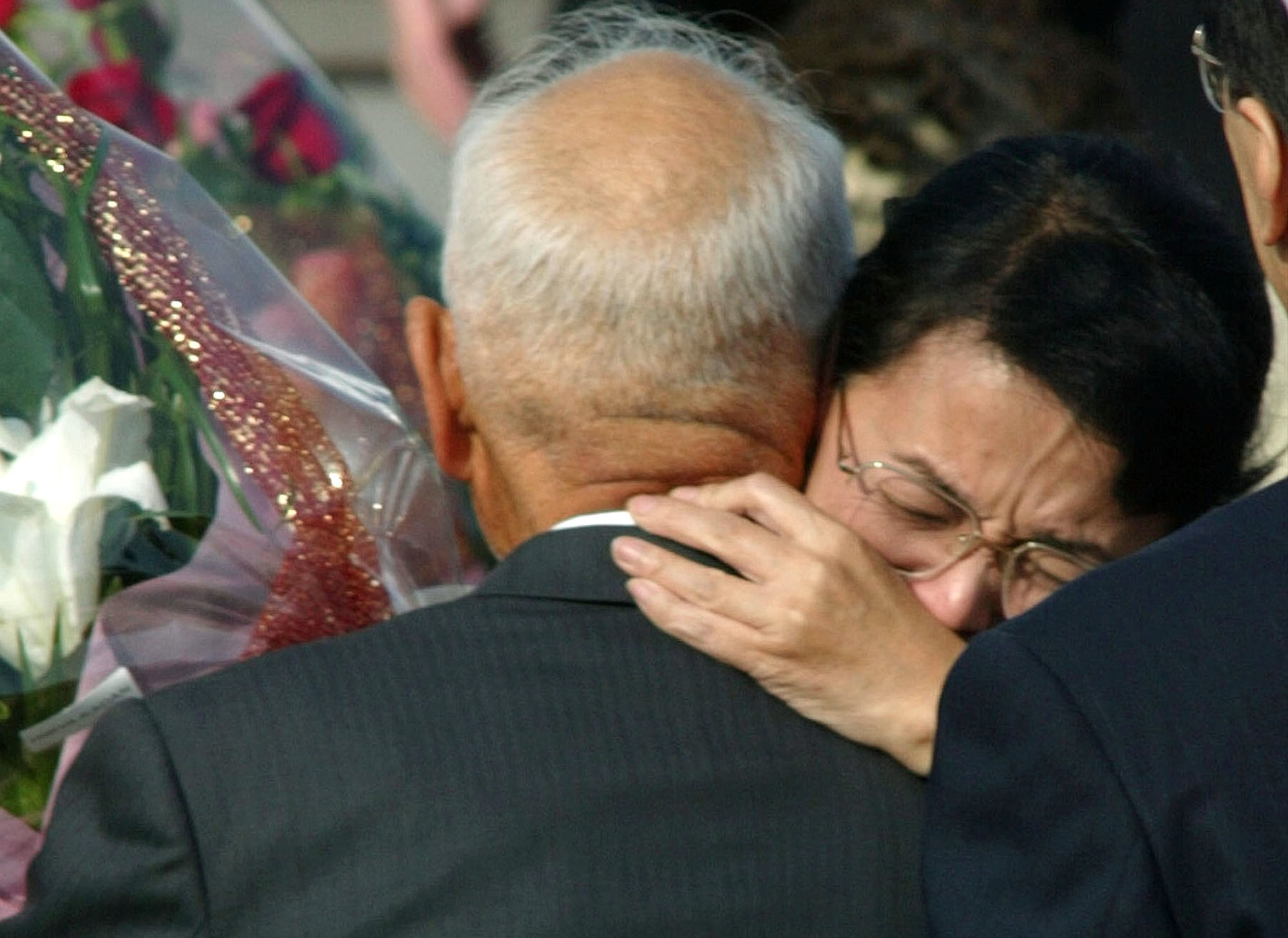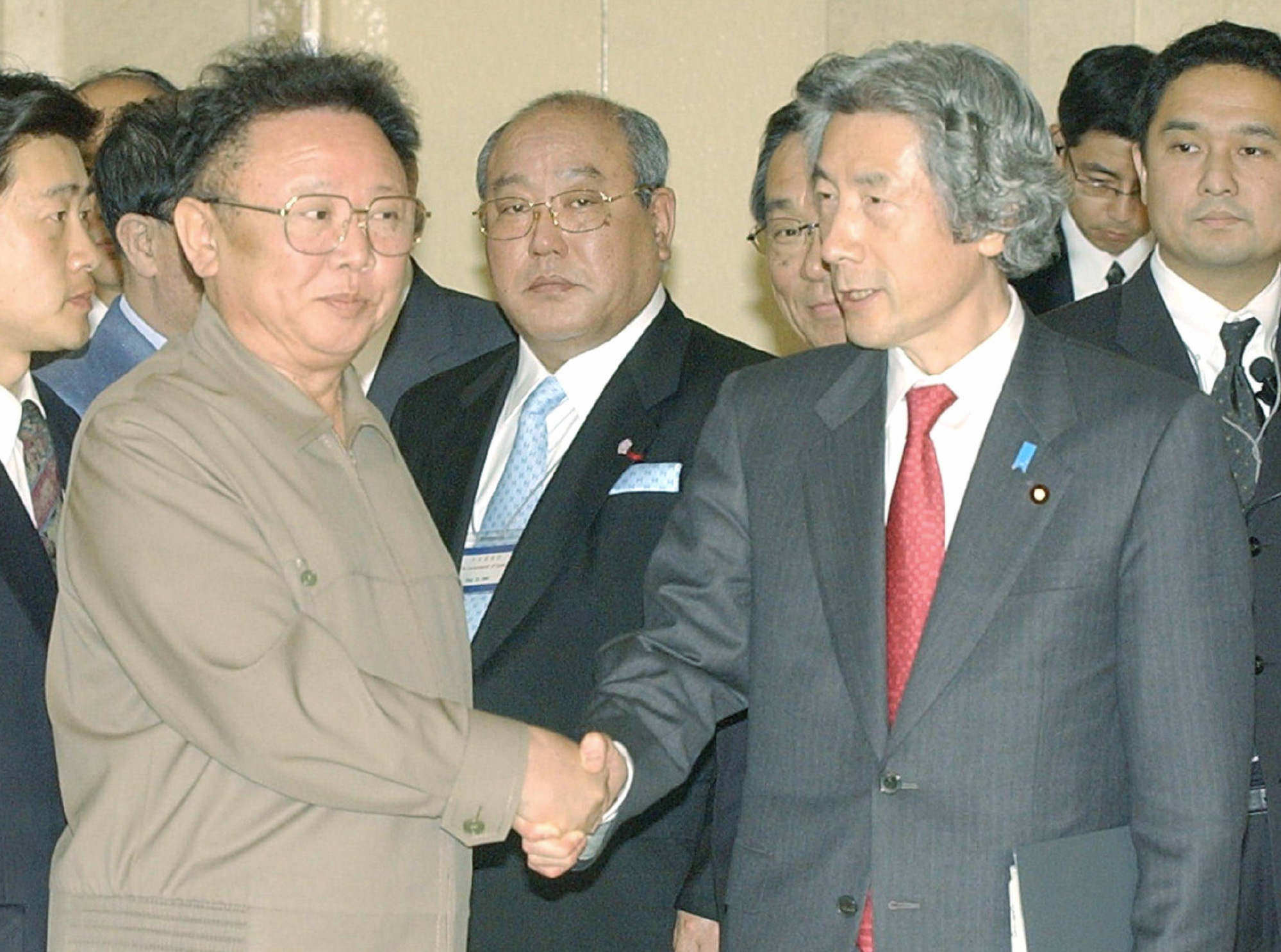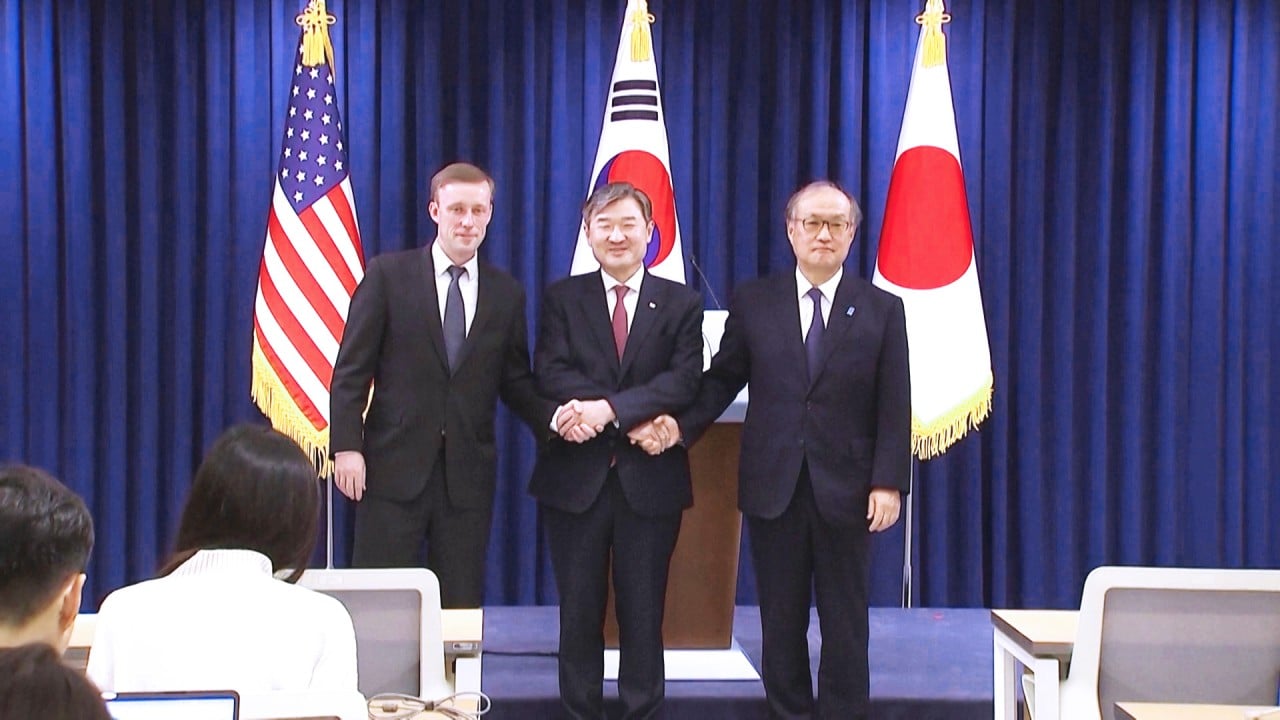The last talks between a Japanese prime minister and North Korean ruler was in 2004, when Junichiro Koizumi met Kim Jong-il, father of the hermit kingdom’s current leader, in Pyongyang for the second time.
“For any administration in Japan, the summit will only help if there is progress on these issues,” he added.
From 1977 to 1983, Japanese citizens were reportedly abducted from Japan by Pyongyang’s agents, mainly to teach Japanese language and culture at North Korean spy schools.

For a long time Pyongyang denied the abductions, but during the 2002 meeting between Koizumi and Kim Jong-il, it admitted to the abduction of at least 13 Japanese citizens, issued an oral apology and freed five abductees.
Earlier this month, North Korea extended a provocative series of weapons tests by firing cruise missiles into the sea, said to be the country’s fourth round of missile tests this year.
Washington, Tokyo and Seoul have stepped up cooperation in a wide range of areas in recent months, including strengthening defence and security cooperation and conducting their first-ever trilateral aerial exercise last October.
Yuko Nakano, fellow with the office of the Japan Chair at the Center for Strategic and International Studies in Washington DC, said North Korea might be gauging how far Tokyo was prepared to go for the meeting to take place, adding that it was highly unlikely that Japan would play along if the abduction issue was off the table.
“It is possible that the Japanese government works out some sort of agreement on the issue with North Korea for them to move forward, but any potential agreement would need to address the concerns of the victims’ families and provide closure to them,” Nakano said.
Citing the approval ratings of Koizumi that rose by 10 points after meeting the elder Kim, Nakano said for a meeting “to give any buoy” to Kishida’s political domestic standing at home, “there needs to be tangible deliverables, particularly concerning the abductees issue”.

Ra Mason, associate professor of international relations and Japanese foreign policy at the University of East Anglia in England, said given Kishida’s experience as foreign minister, “using statesmanship abroad to boost popularity at home is a natural strategy for him to fall back on”.
Mason noted that the late Kim’s “unexpected admission” that Pyongyang kidnapped Japanese citizens had “completely scuppered” Japan-North Korea relations for a generation.
The current Japanese government might seek to showcase its ability by “successfully initiating a process of reconciliation through international summitry”, Mason said.
“[However], the sheer scale and scope of scandals hitting Japan’s current political establishment mean that anything short of extracting major concessions or policy shifts from the North Korean side are unlikely to dramatically offset [Kishida’s] lack of leadership, popularity and charisma.
Japan PM’s bid for talks on North Korea abductions will be ‘political suicide’
Japan PM’s bid for talks on North Korea abductions will be ‘political suicide’
“The political capital that can be gained from engaging with North Korea’s, relatively youthful, leadership is highly limited,” Mason said.
A survey on Monday by the Mainichi newspaper noted that 82 per cent of those polled said they disapproved of Kishida’s cabinet, the worst for any premier since the paper started conducting such polls in 1947.
Mason said North Korea is seeking to maintain a credible military threat for deterrence, while at the same time forging closer economic cooperation to expand trade and commerce.
‘Negotiate now’: families urge Japan take action over abductions by North Korea
‘Negotiate now’: families urge Japan take action over abductions by North Korea
“Japanese policymakers need to remain mindful that the DPRK’s primary goal is regime survival,” Rason said, referring to North Korea’s formal name the Democratic People’s Republic of Korea.
Last July, amid a series of ballistic missile launches by North Korea, Japan extended its sanctions on North Korea, including a ban on all trade, by two years.
Pointing out that Kim Yo-jong’s comments “did not promise better relations”, University of Tokyo’s Hinata-Yamaguchi added that while diplomacy with North Korea is critical, it is a means and not an end in solving the many problems concerning Pyongyang.
“Dialogues with North Korea must only be pursued with the right strategies and visions,” Hinata-Yamaguchi said.


